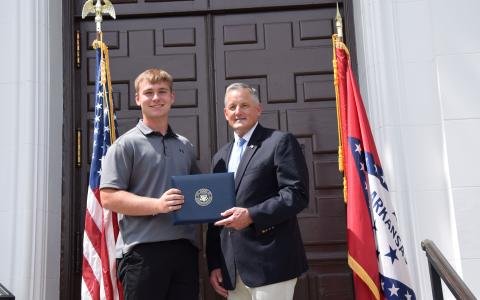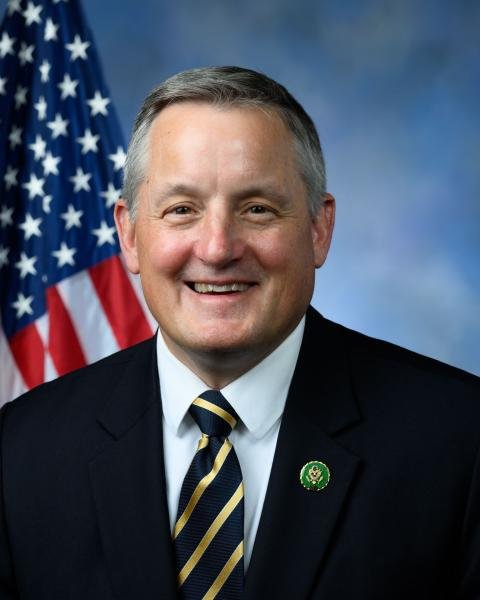U.S. Representatives Bruce Westerman (R-AR), Lucy McBath (D-GA), Don Bacon (R-NE), Danny K. Davis (D-IL), Barry Moore (R-AL), Carol Miller (R-WV), and LaMonica McIver (D-NJ) alongside U.S Senators Kevin Cramer (R-ND) and Amy Klobuchar (D-MN) reintroduced the bicameral Second Chance Month Resolution. The members released the following statements:
“Recognizing April as Second Chance Month is an excellent opportunity to raise awareness on the importance of creating pathways for the millions of Americans previously and currently incarcerated, who have paid their debt to society, and experience the innumerable barriers to re-entering their communities,” said Rep. Westerman. “Each of these Americans have an intrinsic value and are worthy of the dignity that comes with establishing hard-earned jobs and gaining sought-after respect. Everyone deserves a second chance, and Congress must work to break down the stigmas attached to incarceration and reducing recidivism rates. I’m honored to work with my colleagues on both sides of the aisle on this resolution to restore the dignity of these reformed individuals.”
“Hard-working Americans should be compensated fairly for the work they do,” said Rep. McBath. “Declaring April as Second Chance Month highlights the importance of opening opportunities to formerly incarcerated workers and reducing obstacles to gainful employment so that we all have safer communities and our country is made stronger by a thriving workforce."
“Second Chance Month is a representation to all of us about the power of forgiveness and the Second Chance programs are key in that,” said Rep. Bacon. “They have helped reintegrate people back into society, heal families, and give much-needed mental health services. With the help of these support systems, individuals can become productive members of society, restoring dignity and respect to those who have served their time and want to contribute back to their communities and families.”
“There are millions of individuals in our country who have civil and criminal records that serve as barriers to obtaining education, technical skills, training, jobs, and government benefits,” said Rep. Davis. “Second chances - and especially the Second Chance Act – help to reduce and remove these barriers. Therefore, I am proud to join my colleagues in recognizing Second Chance Month. Second Chance Month honors the work of non-profit organizations, faith-based entities, communities, governments, employers, and individuals that help those with records gain the skills, education, and employment needed to thrive, thereby strengthening individuals, rebuilding families, and growing our economy.”
“In Alabama, I have seen firsthand how giving someone who is incarcerated hope by training them with a new skill can significantly impact the recidivism rates,” said Rep. Moore. “The Lord shows us grace daily, and we should extend that same grace to individuals who have proven they are committed to rectifying their mistakes. This bipartisan resolution highlights the barriers that still exist for those with criminal records trying to reintegrate into their communities.”
“In West Virginia, we know how important it is to provide everyone with opportunities to succeed. Recognizing April as Second Chance Month gives hope to those who are reentering the workforce after serving their time incarcerated. When we invest in our communities and put in place resources and support for people released from prisons and jails, we build stronger and safer communities,” said Rep. Miller. “This resolution will bring more visibility to Second Chance programs that are instrumental in helping people across the nation get back on the right path as they reenter their communities.”
“This country was founded on the promise of a new beginning,” said Rep. McIver. “This bipartisan resolution to recognize April as ‘Second Chance Month’ will raise awareness for the barriers faced by previously incarcerated people and promote opportunities for them to create a new beginning for themselves.”
“America is a nation of second chances,” said Senator Cramer. “Yet too often our criminal justice system focuses on punishment over redemption. I joined Senator Klobuchar in introducing a bipartisan resolution to designate April as Second Chance Month, recognizing those who have paid their debt to society and have earned a second chance to rebuild their lives, reclaim their futures, and positively contribute to their community.”
“As a former prosecutor, I have seen firsthand the challenges facing those who have been formerly incarcerated,” said Senator Klobuchar. “People are capable of change and many deserve a second chance. This bipartisan resolution to recognize ‘Second Chance Month’ will bring awareness to these barriers and promote opportunities for those who have served their time to access stable jobs, continue their education, and become productive members of society again.”
Background
Millions of American adults with a criminal record face enormous obstacles to successfully re-enter society upon release. When legal and social barriers prohibit a formerly incarcerated person from finding well-paying jobs, this not only negatively impacts them, but also has lasting negative effects for their families. Beyond that, securing gainful employment and being accepted in society has been proven to reduce the likelihood of these individuals returning to prison in the future, ultimately decreasing crime and improving public safety.
This resolution was endorsed by Prison Fellowship.
“Since Prison Fellowship launched Second Chance Month in 2017, we are honored to lead this growing national movement that includes more than 1,000 partners committed to unlocking second chances for the 1 in 3 Americans with a criminal record who face nearly 44,000 barriers to building a productive future,” said Heather Rice-Minus, CEO and president of Prison Fellowship.
“We encourage Congress to pass this Second Chance Month resolution quickly because supporting second chances recognizes the God-given dignity and potential of every person and reinforces our nation’s commitment to creating pathways for new beginnings, healthy communities, and increased public safety,” said Kate Trammell, Prison Fellowship senior vice president of advocacy and legal.
This resolution is also supported by Brennan Center for Justice, Right on Crime, CPAC, Niskanen Center, FAMM, and National District Attorneys Association.
Issues:Education and Opportunity























